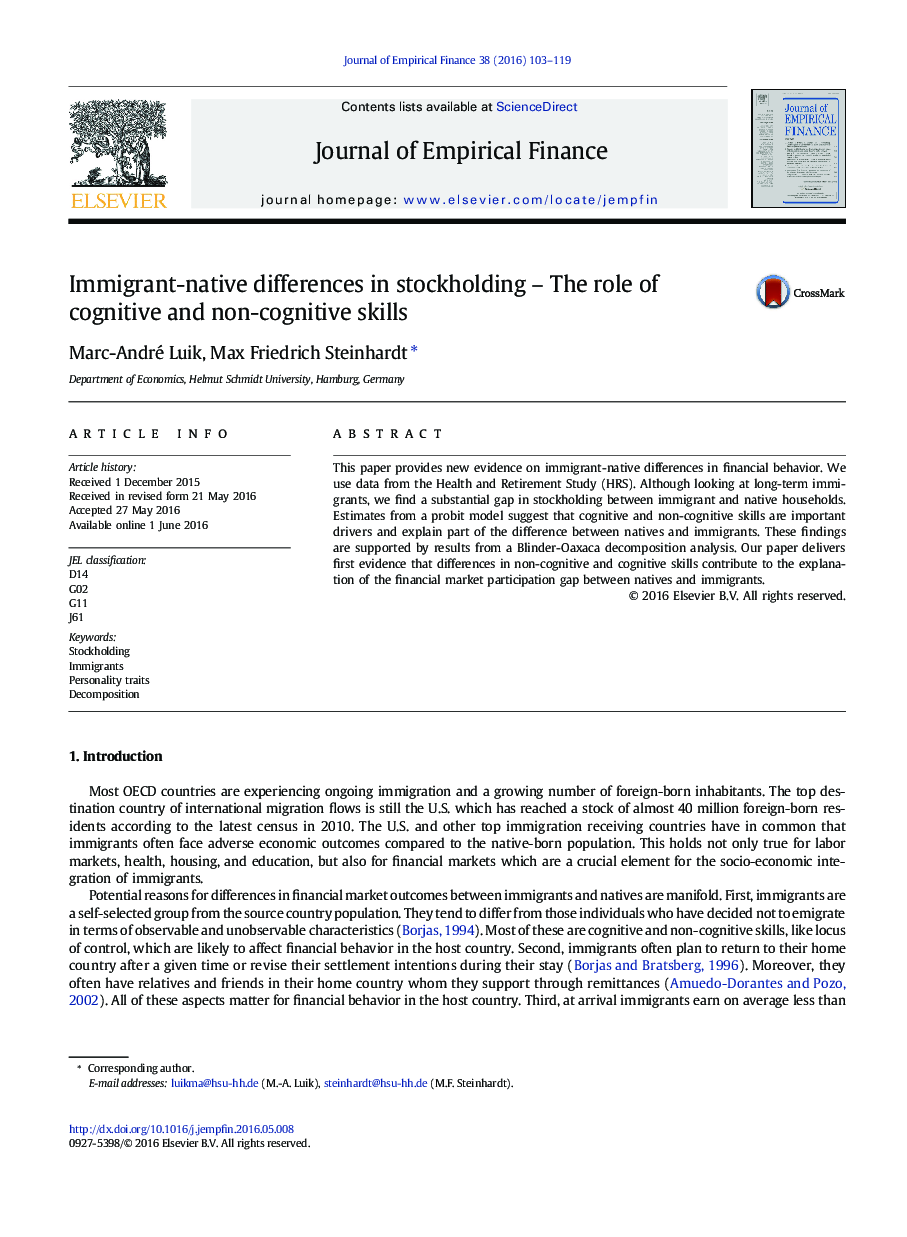| Article ID | Journal | Published Year | Pages | File Type |
|---|---|---|---|---|
| 958626 | Journal of Empirical Finance | 2016 | 17 Pages |
•We study the stockholding behavior of immigrant and native U.S. households.•We find a substantial immigrant-native gap in stockholding.•Personality traits and economic preferences are significant predictors of stockholding.•Differences in non-cognitive and cognitive skills are important factors in explaining the stockholding gap.•Citizenship acquisition and intermarriage is associated with assimilation in stockholding behavior.
This paper provides new evidence on immigrant-native differences in financial behavior. We use data from the Health and Retirement Study (HRS). Although looking at long-term immigrants, we find a substantial gap in stockholding between immigrant and native households. Estimates from a probit model suggest that cognitive and non-cognitive skills are important drivers and explain part of the difference between natives and immigrants. These findings are supported by results from a Blinder-Oaxaca decomposition analysis. Our paper delivers first evidence that differences in non-cognitive and cognitive skills contribute to the explanation of the financial market participation gap between natives and immigrants.
